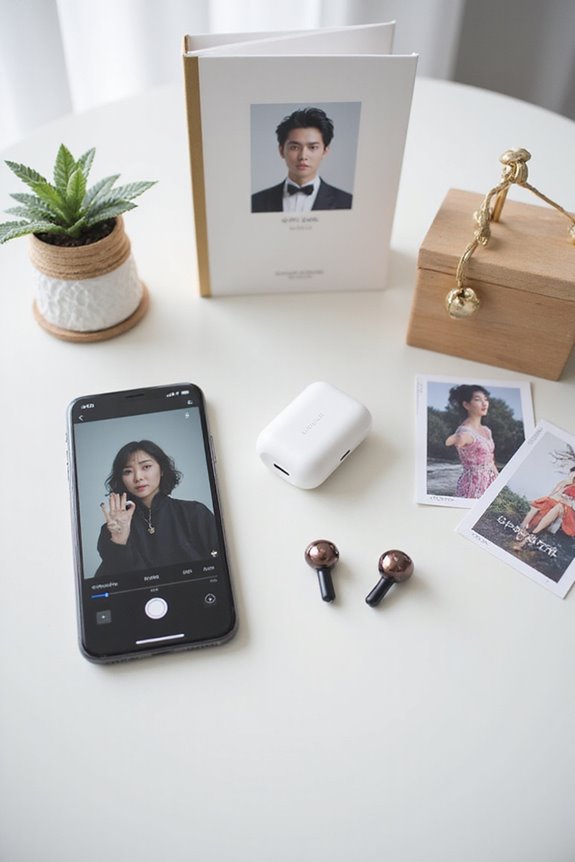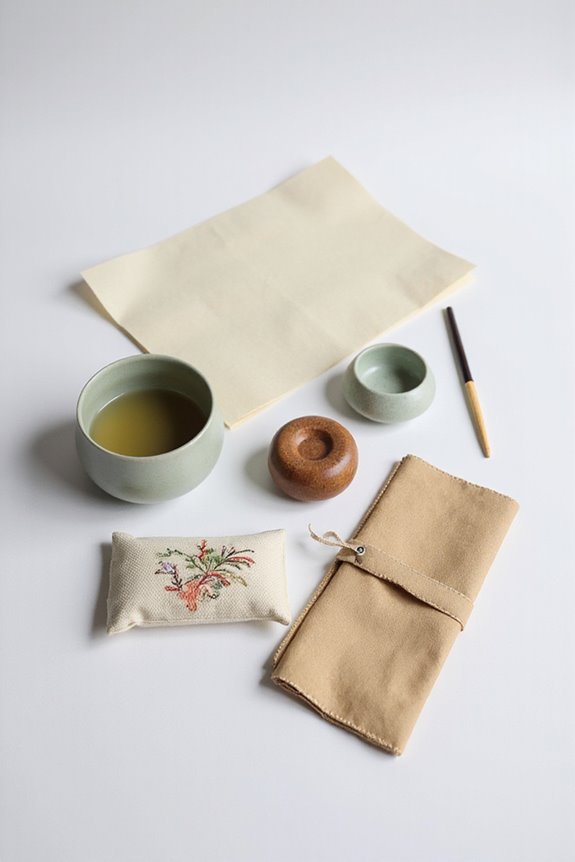Korean cultural differences stem from deep-rooted Confucian values that shape social interactions and hierarchies. We prioritize respect for elders in family dynamics, where fathers often hold authority. Traditional gender roles have historically confined women to domestic tasks, although modernization is changing this. Communication etiquette reflects social status, with formal speech for elders. Celebrations like Chuseok emphasize familial ties through ancestral rites. These aspects illustrate a complex society, where ongoing changes influence behaviors, leading to intriguing developments in culture.
Key Takeaways
- Confucianism profoundly influences Korean society, prioritizing respect for authority and social hierarchy in families, education, and business.
- Korean culture values family harmony and reputation, with filial piety stressing care responsibilities for aging parents.
- Traditional gender roles in Korea are rooted in patriarchy, with men in leadership and women often in domestic roles, though this is evolving.
- Communication etiquette in Korea is hierarchical, using formal language for elders and following age-based protocols in social and workplace interactions.
- Celebrations like Chuseok and Seollal incorporate ancestral rites, emphasizing respect for ancestors and the importance of familial connections through shared traditions.
The Influence of Confucianism on Korean Society
As we explore the influence of Confucianism on Korean society, it is essential to recognize that this philosophical framework has shaped numerous aspects of daily life and social structures. Confucian ethics emphasize authority respect and rigid hierarchical relationships, which permeate education, business, and family life. Social conformity is often prioritized, as seen in our moral education, which cultivates virtues that reflect these values. The expectation of gender roles aligns with traditional ideals, assigning men to leadership positions while women often remain in domestic roles. Ancestral reverence is also integral, where familial loyalty and respect for our elders guide rituals and practices, ensuring that the social order adheres to Confucian principles. This legacy influences contemporary Korean culture, despite ongoing challenges and shifts.
Family Dynamics and Values in Korean Culture
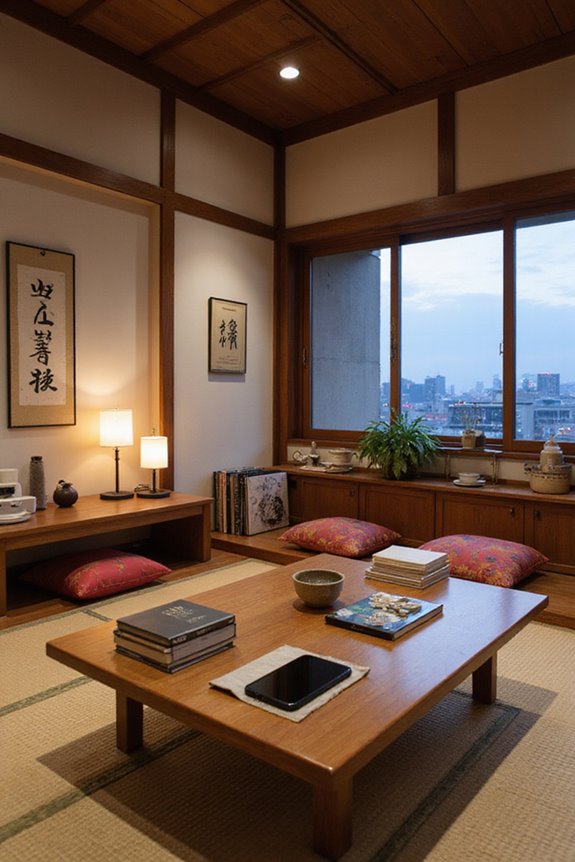
Family dynamics and values in Korean culture are deeply rooted in traditions that emphasize hierarchy and collectivism. Within the family hierarchy, the father or husband typically holds the primary authority, with respect accorded to elders based on age and gender. Collectivist values prioritize family harmony and reputation, meaning that each member’s actions reflect on the family as a whole. For example, children are culturally expected to care for their aging parents, embodying filial piety, a concept rooted in Confucianism. Additionally, educational success is highly valued, leading to increased pressure on children to excel academically. As modernization occurs, more nuclear families are emerging, yet the foundational principles of family hierarchy and collectivist values remain essential in Korean culture.
Traditional vs. Modern Gender Roles

While traditional gender roles in Korea have long emphasized a patriarchal structure grounded in Confucian principles, modern shifts are gradually redefining these expectations. Historically, women were confined to roles as obedient wives and caretakers, with societal norms deeply rooted in male dominance. However, we’ve witnessed significant gender role evolution in recent decades. Increased access to education and career opportunities empowers women to seek professional paths outside the home, reshaping family dynamics. Despite this progress, gender inequality persists, particularly in leadership roles and wage disparities. Additionally, urbanization and globalization challenge traditional norms, although many families still cling to expected domestic roles. As feminist movements continue to advocate for rights, the struggle for women’s empowerment remains a crucial aspect of contemporary Korean society.
Social Hierarchy and Communication Etiquette
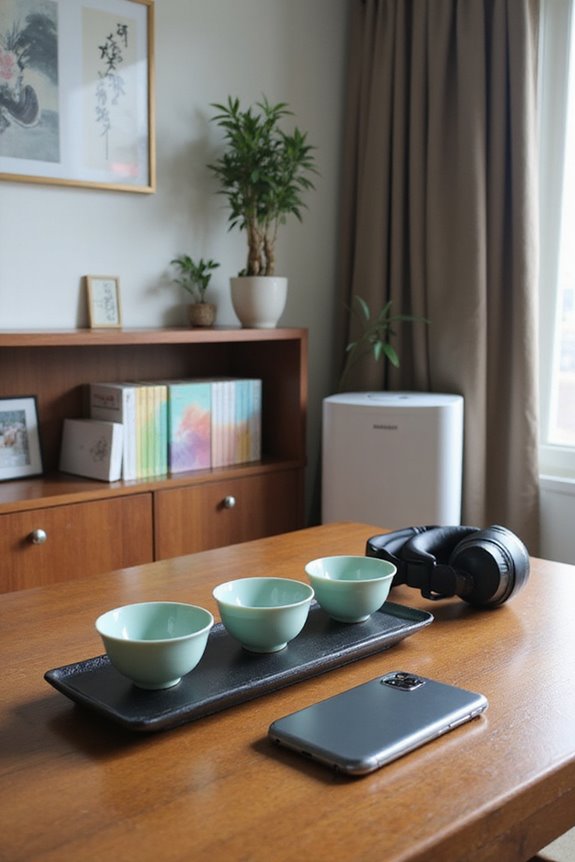
Understanding social hierarchy and communication etiquette in Korea is vital, especially since these aspects are deeply embedded in the culture. In Korean society, hierarchical communication is heavily influenced by age respect and social rank. Elders are addressed using formal language, known as jondaemal, while younger individuals must exhibit politeness and deference. This practice extends to workplace interactions, where employees follow age-based hierarchies to maintain harmony. For example, senior staff receive greater privileges and authoritative recognition, while younger or lower-ranked employees are expected to support them without extra compensation. Social gatherings reflect these hierarchical norms through specific seating arrangements and communication styles. Maintaining awareness of one’s status is vital to avoid social discomfort and uphold respect within both private and public domains.
Celebrations and Ancestral Rites
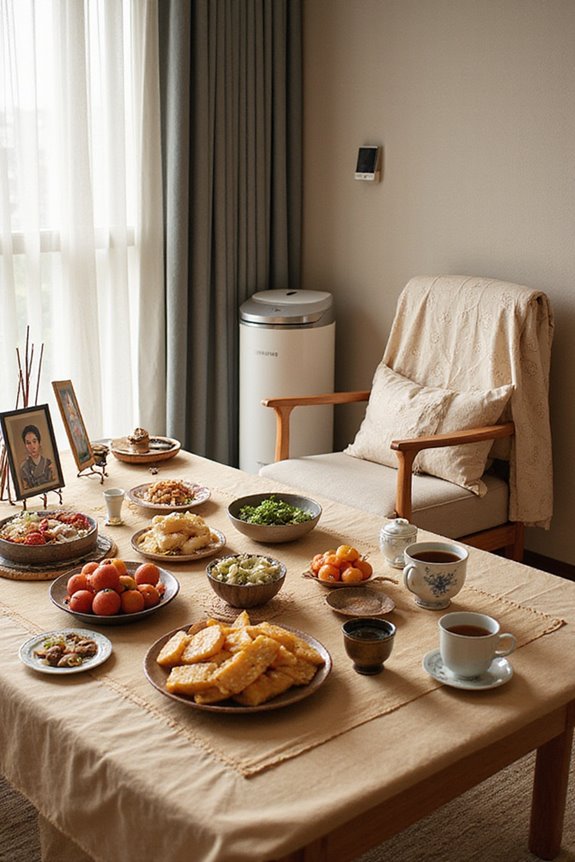
Korean celebrations are rich in history and significance, as they often intertwine with ancestral rites that reinforce cultural values and community bonds. For instance, during Chuseok, or the harvest festival, families gather to perform Charye, conducting ancestral offerings that honor their ancestors with a variety of traditional foods, such as rice cakes and taro soup. Similarly, Seollal, the Lunar New Year, involves the Jesa ritual where family members pay respect to deceased ancestors with carefully prepared offerings. The meticulous arrangement of these offerings emphasizes cleanliness and respect. Both festivals highlight the importance of family gatherings, connecting generations through shared traditions, and fostering a sense of belonging within the community, ultimately reflecting the rich tapestry of Korean cultural heritage.
The Importance of Work Ethic and Education
Education and a strong work ethic are integral to South Korean society, shaping personal identities and societal structures alike. The intense academic pressure faced by students fosters a relentless pursuit of educational aspirations, culminating in one of the highest tertiary education completion rates globally. Nearly 80% of students attend private tutoring centers, known as hagwons, to gain competitive advantages for entrance to prestigious universities. Families often allocate significant portions of their income to these educational supplements, reflecting the societal belief that success hinges on prolonged diligence. This cultural emphasis on hard work not only bolsters individual careers but also drives national economic growth. However, the very rigidity of this education system raises concerns about mental health and creativity among students.
Personal Relationships in Business Interactions
In today’s global marketplace, establishing personal relationships during business interactions can greatly enhance our effectiveness and success. In Korea, relationship building is essential; we focus on long-term commitments that intertwine personal and professional ties. Trust development is a gradual process, requiring patience before finalizing contracts or deals. Engaging in informal social events, such as dinners, plays an important role, allowing us to strengthen rapport in a relaxed atmosphere. While showing interest in personal conversations is encouraged, we must balance this with professionalism, as becoming too personal can be viewed negatively. By respecting hierarchy, demonstrating humility, and engaging in deliberate communication, we create stronger bonds, ultimately leading to lasting business partnerships and increased loyalty in our professional endeavors.
Changes in Societal Norms and Values Over Time
As societal conditions evolve globally, we notice significant shifts in the norms and values within South Korea. The economic miracle since the 1960s fueled rapid urbanization, reshaping demographics and influencing our collective mindset. This shift contributed to the emergence of individualism, where personal fulfillment took precedence over traditional Confucian ideals of hierarchy and collective perseverance. As younger generations increasingly prioritize emotional well-being, family structures have also transformed; we now observe a rise in nuclear families and egalitarian relationships. Democratic advancements since the 1980s further encouraged these changes, fostering a culture that values individual rights and participation. Overall, this societal transformation reflects broader trends, where modernization and globalization redefine what it means to be Korean today.
Frequently Asked Questions
How Do Koreans View Individualism Versus Collectivism?
We see that Koreans prioritize collectivism practices over individualism values, fostering a strong sense of community where group well-being often supersedes personal desires, emphasizing harmony, loyalty, and shared identity in relationships and social roles.
What Are Common Misconceptions About Korean Cultural Practices?
We see a blend of misconceptions, like excessive eye contact seeming respectful, whereas it’s often confrontational. Korean etiquette, shaped by Confucian influence, values subtlety, highlighting the complex layers beneath a seemingly uniform cultural practice.
How Has Globalization Impacted Traditional Korean Customs?
Global influences have transformed traditional Korean customs, blending them with modern practices. While we adapt our heritage for contemporary appeal, we still prioritize cultural preservation, ensuring that our rich traditions remain meaningful in today’s world.
What Role Does Technology Play in Modern Korean Communication?
Through technological terrain, we’ve witnessed digital communication’s dynamic evolution in Korea. With widespread technology adoption, social media sparks significant interactions, transforming how we connect, consume, and share information in our fast-paced digital landscape.
How Do Regional Differences Affect Korean Cultural Expressions?
Regional differences shape our Korean cultural expressions greatly; from distinct regional dialects to unique cultural festivals, we see how communities embrace their heritage. These variations enrich our identity, creating a vibrant tapestry of cultural experiences.


